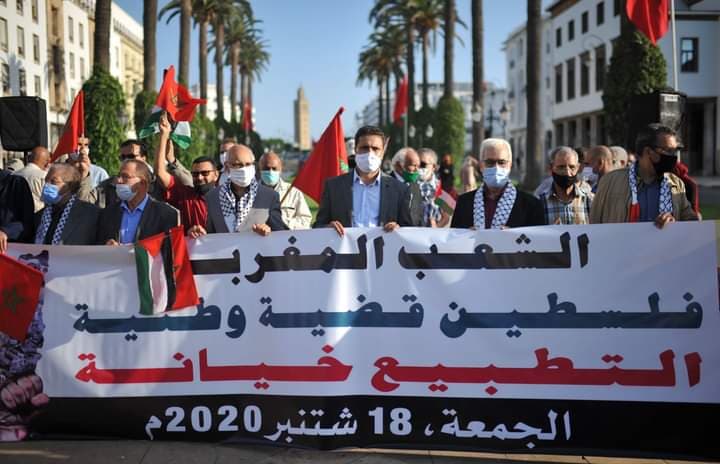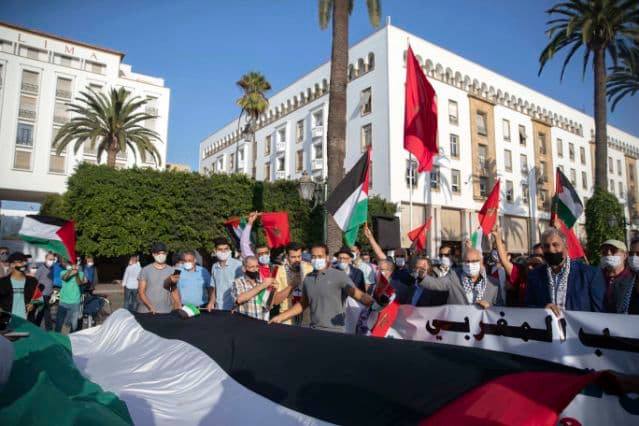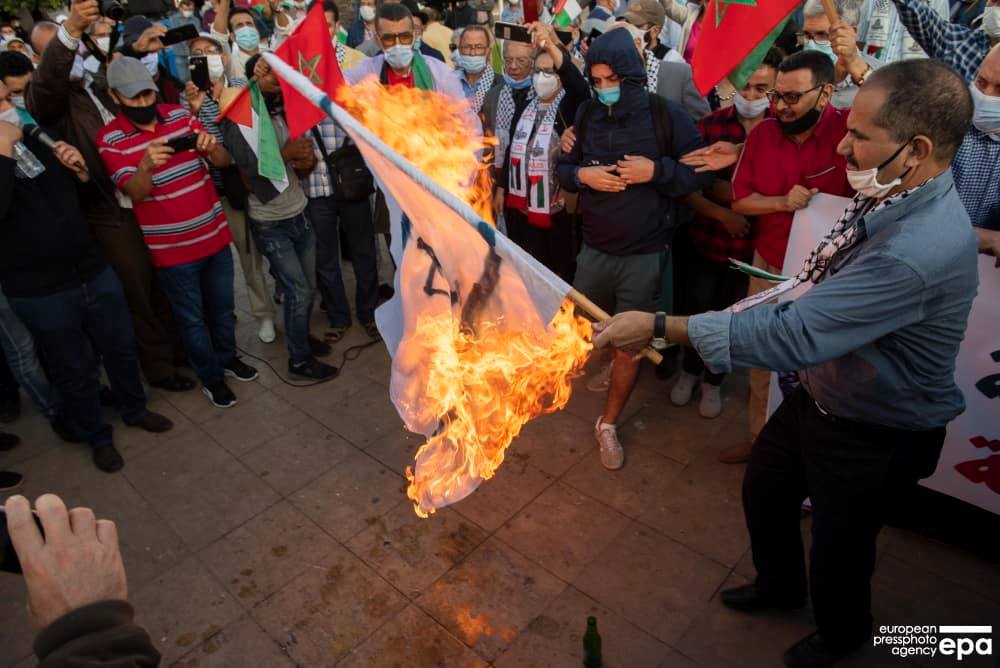On Tuesday (15 September 2020), Israel signed a US-backed diplomatic agreement with the United Arab Emirates (UAE) and Bahrain, purportedly to improve the relations in the Middle East. However this supposedly historic move from all angles comes at a cost for the Palestinian people, breaking longstanding Arab unity in opposition to Israel’s military occupation.
Reports detail that Morocco and other Arab nations are pre-empted to follow suit with the normalisation of ties with Israel. Although the Moroccan PM Saad-Eddine El Othmani previously rejected the idea of signing an agreement last month, the Moroccan people are more sceptical of future relations and how their leader could potentially concede if other Arab nations go down the same route.
On Friday, 18 September, hundreds of pro-Palestine protesters gathered on the streets of Morocco’s capital Rabat outside Moroccan Parliament, waving Palestinian flags and chanting “Palestine is not for sale.” Alongside the Palestinian flags, Israeli flags were burned during the demonstrations.
One of the organisers of the demonstration and former president of the Moroccan Association of Human Rights, Abdelhamid Amine, told The Associated Press “The normalization deals are an attack on the Palestinian people and their cause. We are calling on the Moroccan government not to follow suit and we urge it not to surrender to the Zionist and imperialist pressure like other Arab countries.”
Many Palestinians perceive the recent attempts by Israel and the US to forge ties with Arab nations as a betrayal that works to counteract the fight for Palestinian liberation. For them, the normalisation of Israeli-Arab ties is far from a peace agreement and is instead a justification for further annexing of Palestine by the Israeli Defence Force.
Before the UAE and Bahrain’s historic signing of the deals, the only Arab nations to have forged relations with Israel were Egypt in 1979 and Jordan in 1994. Although Morocco doesn’t have any official diplomatic relations with Israel, the nation does have its own native Jewish communities with close links to Israel. In addition, Morocco is a strong ally to the US and has established trade and tourism relations with Israel, meaning that since the UAE and Bahrain deals were partly brokered by the US, there is a likelihood that the nation will cave into pressures to sign a normalisation deal.
Challenge News Desk





